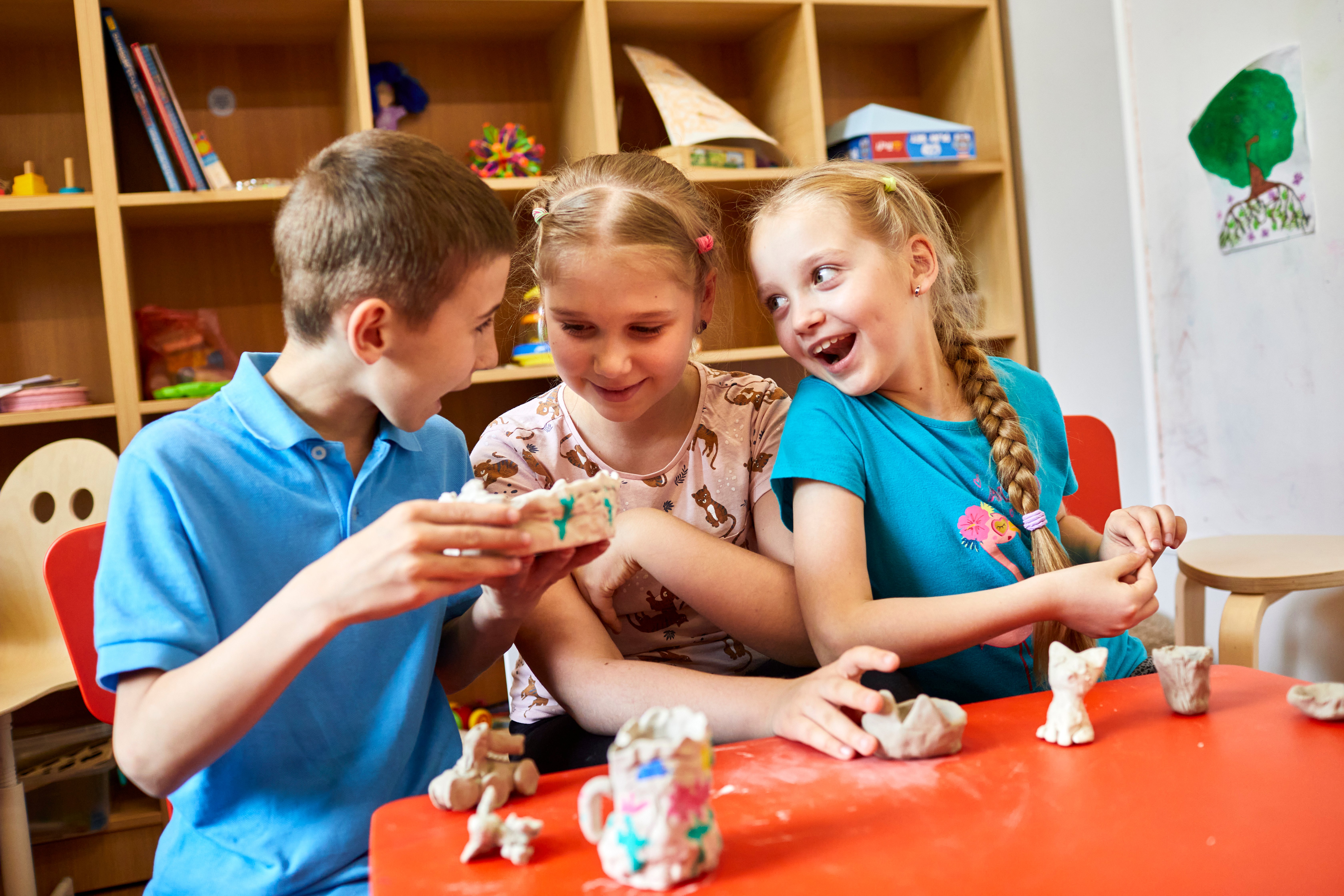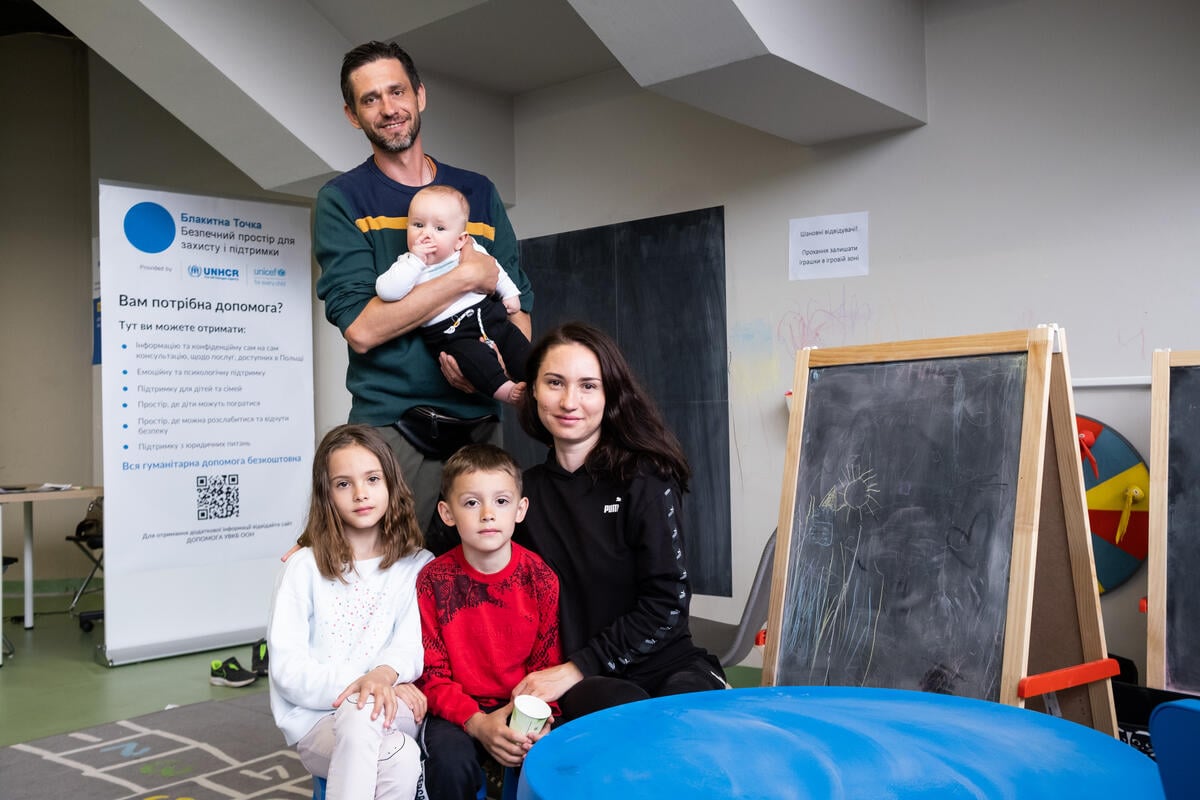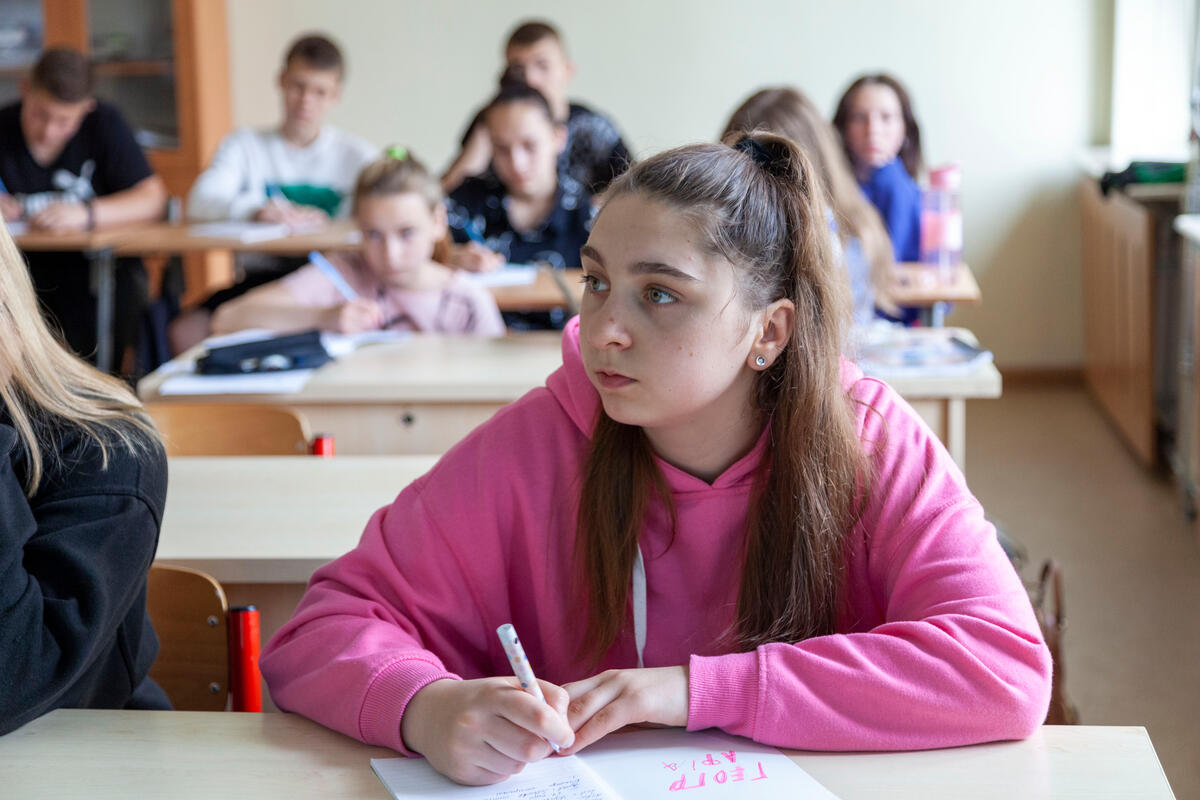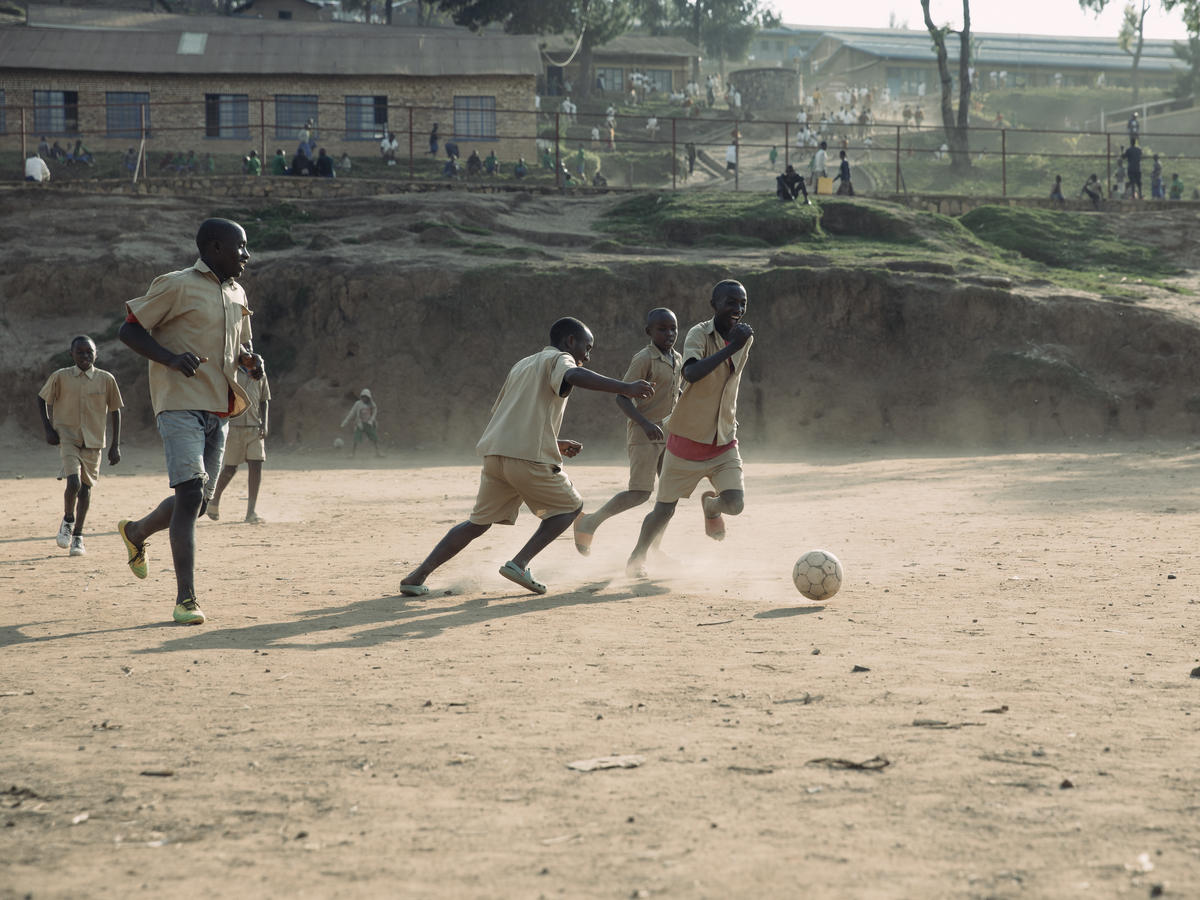Refugee children in Mexico inspire a book to fight prejudice
Refugee children in Mexico inspire a book to fight prejudice

MEXICO CITY, Mexico, October 27 (UNHCR) - Their eyes wide with anticipation, more than 40 children, both refugees and Mexicans, sat down on the floor as the storyteller began to read: "This is the story of Yaro and his family ... about them leaving their home because of the war, and how they came to Kipatla to start a new life.... "
The refugee children were not only the guests of honour at this party last week at the Mexico City's Human Rights Commission; they were the inspiration for the book being read. Titled "Ndagu para Yaro" (A House for Yaro), the children's book was produced by the Mexican National Council to Prevent Discrimination (CONAPRED).
It is part of a series of stories for children aimed at promoting tolerance and non-discrimination towards those who are different from us. The party for the children and their parents was organized by UNHCR, CONAPRED, and UNHCR's partners, Sin Fronteras and Amnesty International Mexico.
The children, aged five to 17 years, not only listened to the story but also played games designed to teach them their rights. At the same time, their parents attended a workshop on how to present discrimination complaints to CONAPRED.
"Ndagu para Yaro" tells the story of the discrimination faced by a refugee family, and also describes how the children are able to make adults overcome their prejudice against refugees.
"All the stories take place in Kipatla, which is a place that exists, but at the same time it doesn't exist yet," explained author Nuria Gómez. "It is a place that is changing. Kipatla means 'what has changed' in Nahuatl [a language of the Ancient Aztecs]. It's a place where people are learning to treat everyone the same."
As she was writing the book, Gómez met refugee children who regularly play at the Refugee Park and asked them about the reasons why they had left their homes. "Each one of them helped me write the story of Yaro," she said.
The playground session inspired Gómez's contribution to the Kipatla, series. Kipatla, she added, "exists in the backyard of a school where children of different races play together. Kipatla is shaped every time each one of us makes an effort to change our hearts and our minds to create a better global community."
By Mariana Echandi in Mexico City, Mexico









